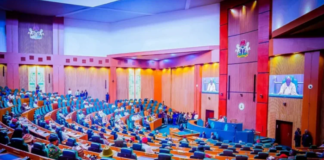Child sexual abuse and exploitation happen everywhere and are pressing concerns for both wealthy and developing countries alike, according to a first-of-its-kind research programme, Out of the Shadows: Shining light on the response to child sexual abuse and exploitation.
Developed by The Economist Intelligence Unit (www.EIU.com) with support from the World Childhood Foundation and Oak Foundation and with additional support from the Carlson Family Foundation, the Out of the Shadows Index and report are unique tools that reveal how 40 countries at the national level are confronting child sexual abuse and exploitation.
The policies, practices and standards presented in the index highlight how governments, the private sector and civil society can move toward achieving Target 16.2 in the UN’s Sustainable Development Goals, which calls for ending all forms of violence against children by 2030.
Created with guidance from an international panel of experts, the index covers a comprehensive range of critical issues, including policies on child marriage, reproductive and sexual health, gender differences, law enforcement, and child sexual abuse online, where the expansion of broadband internet has placed more children at risk.
Index indicators also focus on the engagement of businesses in fighting child sexual abuse and exploitation, especially the technology and travel/tourism industries. The 40 countries included in the index cover 70% of the global population under 19 years of age.
Key findings from the Out of the Shadows study:
The UK, Sweden and Canada hold the top three positions in the index. UK government policy to protect children is particularly well developed, and the country has a high level of engagement from industry, civil society and the media. Sweden’s overall environment for children and its legal framework are especially strong, as are Canada’s. Complete rankings are available online at OutoftheShadows.eiu.com.
Data to measure and understand the scale of the problem are lacking. Despite investments and efforts globally to combat and catalogue online child sexual abuse and to track reported incidents of sexual violence against children, just half of the 40 countries reviewed in this index collect nationally representative prevalence data on child sexual abuse and only five collect such data on child sexual exploitation.
Boys are overlooked. Just over half (21) of the 40 countries do not have legal protections for boys within their child rape laws, while only 18 countries collect prevalence data about sexual abuse of boys.
Country action has been most pronounced on legal frameworks that protect children. International coalitions can be a path to better legislation, and countries that have strong legal structures also have good fundamentals, including designated national plans, policies and institutions to address sexual violence against children.
Combatting child sexual abuse and exploitation is becoming a greater priority on the global stage and in many individual countries, and research shows that progress is possible even when resources are limited.
Sexual violence against children takes place mostly in the shadows, but is a universal threat— no boy or girl is immune. Yet this especially pernicious form of abuse is rarely discussed, even though its emotional and health consequences linger, and the socioeconomic impacts can be devastating.
The risks to children have been greatly increased by improved communications connectivity and mobility, which make it easier for offenders to find and lure children online.
What can countries and companies do? Barriers and pathways to progress in fighting sexual violence against children are discussed in detail in the index report and data model, which are available online at OutoftheShadows.eiu.com.















